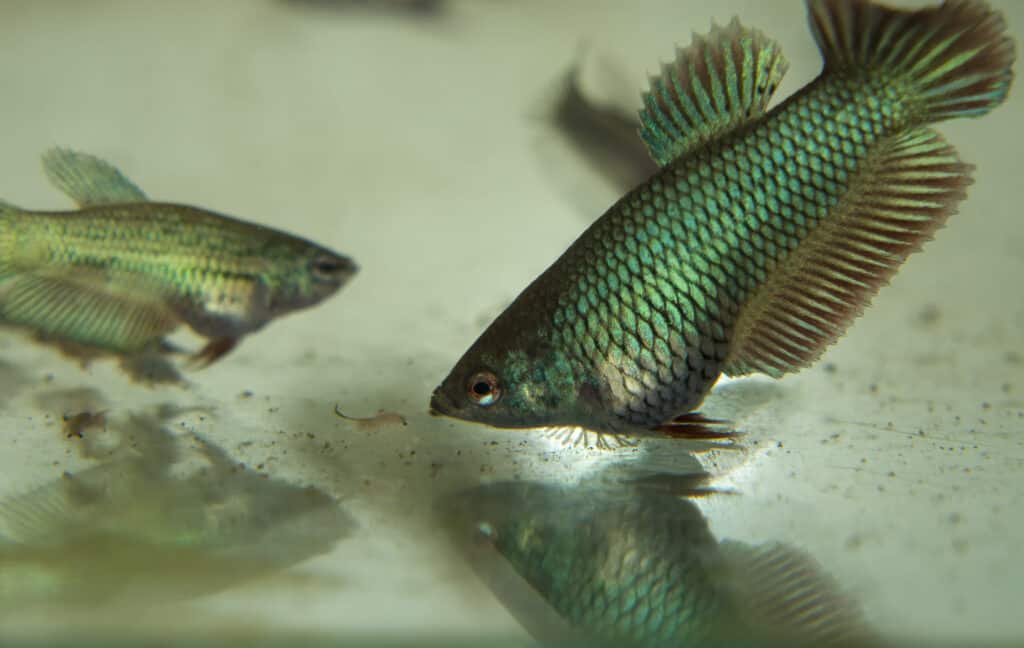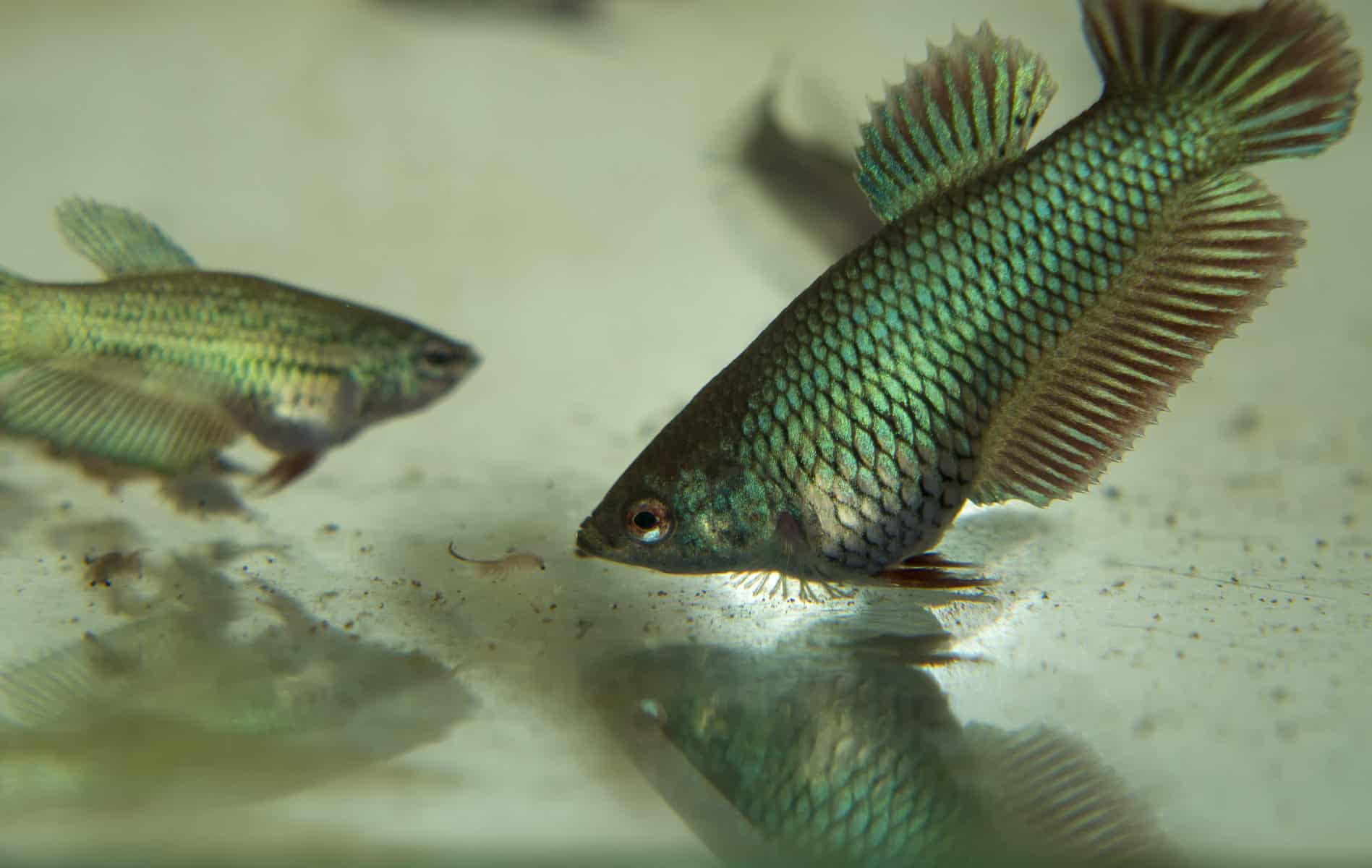Feeding time is perhaps the most exciting interaction you can have with your favorite pet betta fish. Nothing is more satisfying than dropping pellet after pellet into the water only to have it quickly scooped up by your hungry little hunter.
While your betta friend loves you for every fish pellet you feed them, bettas in the wild will eat food whenever they come across it. So it’s your responsibility as the owner to ensure that you feed them the perfect amount without overfeeding.
No need to worry; read ahead for some simple tips and tricks for controlling your betta’s diet.
Betta Feeding Behavior
In their natural habitat, betta fish are solitary hunters who will patrol their territory, feeding on whatever is available. Because of this behavior, betta fish will eat as much food as they are given.
This can be incredibly harmful to their health, as overeating can lead to serious health issues like constipation and swim bladder disorder.
Due to these overzealous eating habits, many betta owners suggest going one day without feeding every 10 days. As long as they are provided a healthy amount, this will help to aid their digestion and further prevent health issues due to overfeeding.
Symptoms of an Overfed Betta
There is a reason that overfeeding is one of the most common causes of death for betta fish. Even the most loving owners can easily feed their betta a bit more than they should. Because of this, you must be able to easily identify symptoms of overfeeding in betta fish so you can adjust their diet accordingly.
Bloating
Constipation and other issues with the betta’s internal organs can result from overeating. This can give your betta a bloated look, especially in the belly area.
As this can worsen and eventually clog their swim bladder, it is vital to keep an eye on your betta, making sure it doesn’t seem to be swimming sideways or struggling to keep itself upright.
Lethargy
Much like us, a sick betta may appear very lethargic at times, swimming around much less than usual and spending much of the day in a near sleep-like state.
When a betta is dealing with digestion issues from an improper diet, it can be incredibly uncomfortable and cause the sluggish behavior.
Excess Nitrates in Tank Water
While not necessarily a symptom that your fish will show, if you constantly have to perform water changes due to high nitrate content in the water, it can be a clear indicator that you may be overfeeding your betta.
Any uneaten food left in the tank will turn to waste, leaching harmful ammonia/nitrates into the water. Feed your betta just as much as it will eat in a couple of minutes, and remove any excess food.
A well-maintained tank will have an established nitrogen cycle, and ammonia will be converted into nitrates. However, leaving excess food in the tank will result in more frequent water changes to maintain healthy water quality.
How Much Should You Feed a Betta?
Remember that a betta’s stomach is slightly larger than its eyeball. A general rule of thumb for typical pellet-style betta food is to feed your fish two to three pellets twice a day.
This should be plenty of food for your little fish friend, and keeping their diet and portions regular is the best way to prevent overeating.
Treating a Fish That Has Symptoms of Overeating
If you are worried that your betta may have overeaten, there are a few steps that you should take to evaluate the situation. Whether your betta seems lethargic, bloated, or something simply seems off, altering its diet may help.
Feeding a betta half of a peeled pea is one of the most popular home remedies for swim bladder disorder and constipation. This will give your betta a quick boost of fiber that will help to regulate its bowel movements.
The stress caused by this discomfort can also harm your betta and leave them more vulnerable to other infections and diseases. Products like stress coat can help to protect your fish while its immune system is still recovering.
Final Thoughts
Whether you are worried that your betta fish may have overeaten or want to prevent overfeeding your betta in the future, follow our simple steps to keep your fish friend in good health!
Never feed your betta more than it can eat in one session, and be sure to remove any excess food right away. Two to three pellets twice a day should be perfect!
If your betta is having digestive complications due to its diet, remember that peeled peas are a great source of fiber which can help with any digestive issues.
Hopefully, you have a better idea of how to create a proper diet for your betta and will be able to recognize the signs of overeating should they ever arise.

